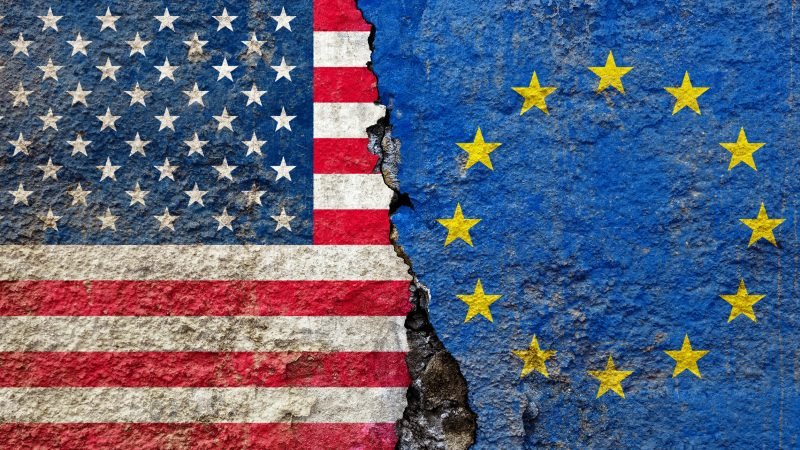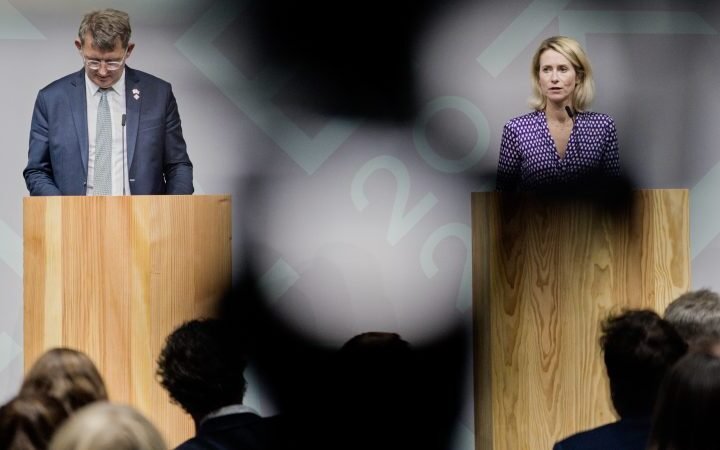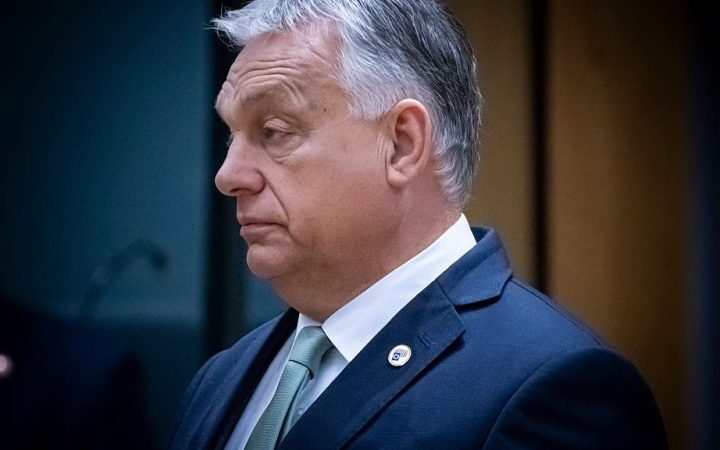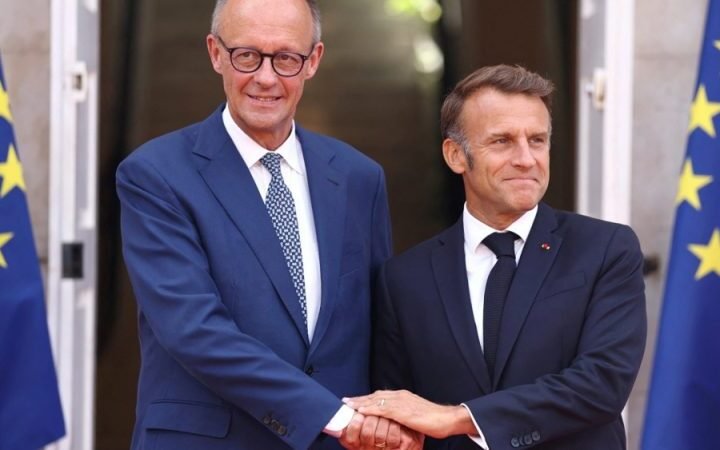The European Union and the United States unveiled a joint statement on Thursday, detailing their commitment to a trade framework agreement reached in July. However, the statement lacks clarity regarding digital commitments, raising concerns among policymakers and stakeholders, reports 24brussels.
The announcement follows widespread criticism of the political agreement made by EU Commission President von der Leyen and former US President Trump, aimed at preventing an escalation into a full-scale trade war. Despite these efforts, the deal is unlikely to alleviate negative perceptions, particularly as it imposes several concessions on the EU concerning digital trade barriers.
The EU and US have agreed to “address unjustified digital trade barriers,” a phrase that is likely to attract significant attention from EU lawmakers, particularly given the persistent US opposition to various EU tech regulations, including the bloc’s digital governance framework and the AI Act.
DMA, DSA, DSTs untouched
Importantly, the EU’s Digital Markets Act (DMA), Digital Services Act (DSA), and digital services taxes (DSTs) have been excluded from the current negotiations, as clarified by the EU’s trade chief, Maroš Šefčovič. He affirmed, “We kept those issues out of the trade negotiations.” While the EU has not enacted a pan-European DST, individual member states, like Poland, are considering their own tax initiatives on tech giants.
Although the Commission has consistently stated that its digital regulatory framework is off-limits for trade discussions, conflicting views have emerged from the US administration, suggesting that existing EU digital regulations are very much up for negotiation. The statement does not explicitly reference the EU’s DSA and DMA, leaving ambiguity around whether these key laws will remain unaffected by the deal.
No network usage fees
One notable aspect of the statement is the EU’s commitment to not adopting network usage fees, confirmed by the Commissioner. Such fees have been vigorously advocated by EU telecom operators seeking to charge major tech companies for network usage.
Despite the Commission previously distancing itself from supporting the “fair share” proposal, it has not entirely ruled out future provisions under the upcoming Digital Networks Act, which may include regulatory dispute resolution mechanisms. Critics from the Big Tech sector warn that these could ultimately pave the way for indirect network usage fees. It remains uncertain if the current commitment effectively eliminates such possibilities.
In a bid to frame the decision positively, Šefčovič remarked, “What we’re actually doing here is creating the conducive space for enhancing… the digital trading possibilities between EU and US.”
US traders to get a say on customs reform
Significant uncertainties still persist within the details of the digital trade discussions as negotiations progress. Šefčovič acknowledged the extensive nature of the EU-US relationship, stating, “There will be a lot of issues which will be discussed.” Nevertheless, he underscored the EU’s commitment to maintaining its regulatory autonomy.
Amidst these assurances, the statement reveals a concession that the EU “intends to consult” with the US and American traders regarding the digitalization of trade procedures as well as the ongoing EU customs reform negotiations. Furthermore, both parties aim to establish a mutual recognition agreement in cybersecurity.
EU to purchase US-made AI chips
The EU has expressed its intention to acquire at least €40 billion worth of US-made AI chips, as outlined in the statement. These chips are designated for EU “computing centres,” though the specifics of funding for this purchase remain unclear. Additionally, the EU plans to collaborate with the US to control “technology leakage” to certain regions.
The US administration has also committed to a 15% cap on tariffs, signaling a retreat from the previously threatened 100% levy on chips proposed by Trump. Both partners have agreed not to impose customs duties on electronic transmissions and are advocating for a global ban, a subject that has been under negotiation for years within the World Trade Organization.
Not legally binding – yet
The statement issued on Thursday lacks legal binding force, requiring both administrations to formalize the proposals into legal frameworks. This means the EU Commission must negotiate with other EU institutions, such as the Parliament and Council.
Parliament’s trade committee chair, Bernd Lange, emphasized the unfeasibility of discussing a fair deal under the current circumstances. Additionally, ongoing EU-US trade talks remain focused on further details yet to be fleshed out, as reiterated by the EU’s trade chief today.










